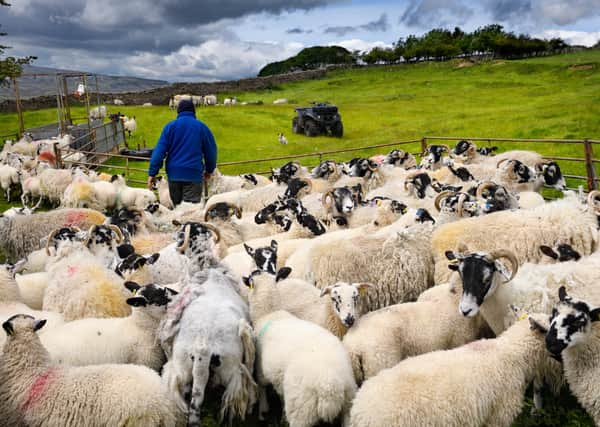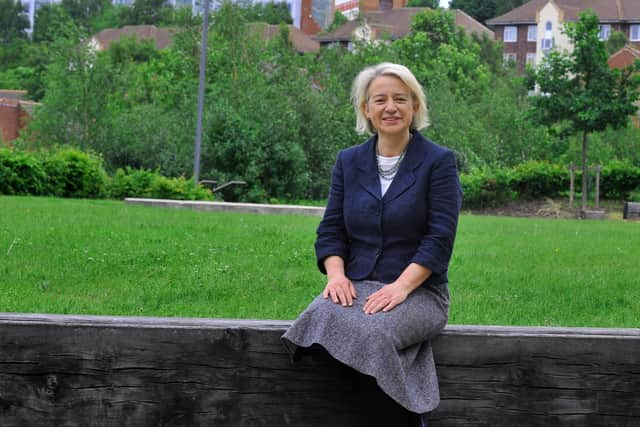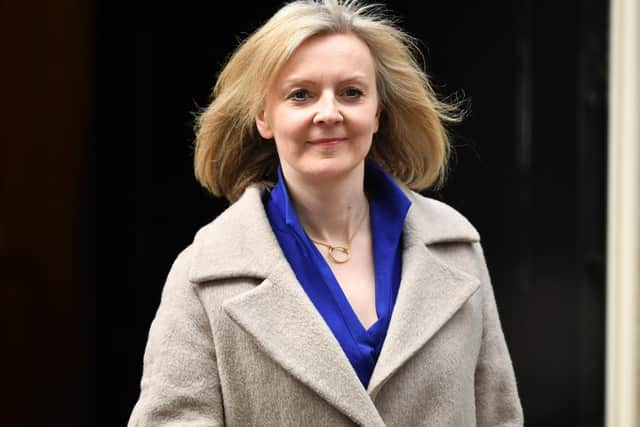Australian trade deal will hurt British farmers, animal welfare and global climate: Natalie Bennett


One such was a little story, no more than a novelty for the London papers, that landed one night when I was sub-editing at The Times, in 2000 or 2001, as a new arrival from Australia via Bangkok. It was about an RAF helicopter being called in to rescue some beasts that had fallen over a cliff in the north of Scotland.
One reason it sticks in my mind is because after the first edition I was raging around the office, pointing out that these beasts were either cows, steers or bulls. They couldn’t possibly be all three, as we’d managed to call them in one short story.
Advertisement
Hide AdAdvertisement
Hide AdLots of graduates of PPE from Oxford, and English majors from Cambridge, looked on in bemusement, unable to see what the big deal was. As a former Australian rural journalist who once nearly won the “guess the micron of the sheep’s fleece” competition, I was horrified at the rural illiteracy.


London media has little understanding of farming or rural life, as memorably highlighted by a circular email from the Times newsdesk a few years later demanding a “traditional rural show” be identified for the coming weekend: “must be within 40 miles of London”.
But the other thing I remember about that story was my initial reaction, a very Australian reaction I later came to recognise: “Why don’t they just shoot them, rather than go to all that expense and potential danger to humans of rescuing them?”
That was a reflection of my experience of working on a range of livestock farms around New South Wales and Queensland.
Advertisement
Hide AdAdvertisement
Hide AdI’d been exploited as a work experience student by a wheat/sheep farmer who didn’t like sheep, and who left the 20-year-old me alone to hand shear horrendously fly-struck crossbred ewes with 18 months wool on them who’d become cast after suffering horribly in the middle of summer. This farmer threw the dead carcasses under the shade of trees “so the neighbours can’t see them”.


A hundred kilometres of so west of Dubbo, in what could be fairly called the inner Outback, I fell off a horse into galvanised burr bush trying to muster wild young cows bearing their first calves who hadn’t enjoyed their few contacts with humans.
They were small cows, due to undernourishment, but the bull they’d been put with and their calves were big, and many were unable to calve. In one case the farmer tried to extract a calf with a rope and a Land Rover, which left a cow in agony with a broken pelvis.
Those experiences are all from 30 years ago, but there’s no evidence of significant improvements in animal welfare in Australian farming. In fact farms have generally got larger and even more thinly staffed, so “domestic” animals have even fewer encounters with humans, except on the new giant US-style feedlots with a whole different range of animal welfare, health (and environmental) issues – including the use of “hormone-injected beef” that we were promised last year would not be allowed for UK imports.
Advertisement
Hide AdAdvertisement
Hide AdDespite considerable pressure, mulseing of sheep (a significant operation carried out without anaesthetic) remains common. Increasing the imports of agricultural products in no way can be aligned with endless UK government hot air about “maintaining standards” – something they’ve resolutely refused to put into legislation.
The focus in the debate about an Australian trade deal has tended to be – understandably and rightly – on the potential impact on UK farmers.
How can a farmer who checks her animals a couple of times a day, calls the vet when they are ill, carefully nurtures their wellbeing, compete with one operating on a scale of tens of thousands of hectares, who bring the stock in two or three times a year, possibly by helicopter, harvesting what are very nearly wild animals, left to live or die at little cost – as on a farm I worked outside Longreach in North Queensland?
But there’s also a question of how can increasing the import of food from such a destructive, extractive, damaging system, one causing massive climate and biodiversity impacts, be even considered in the year of COP26?
Advertisement
Hide AdAdvertisement
Hide AdIn an age in which Covid-19 has highlighted the fragility of our global systems, why would we be further lengthening our supply chains, rather than ensuring our food security (and spreading prosperity around our nations) by supporting an expansion of small, independent food producers – particularly of vegetables and fruit?
Pre-Brexit, we and continental Europe swapped fast-increasing quantities of ice-cream in a trade notable for its utter pointlessness. Now the Government is intent on swapping beef with Australia, in a new exercise in pointless not-so-creative capitalist destruction.
Baroness Natalie Bennett of Manor Castle is a Green Party peer. She lives in Sheffield.
Support The Yorkshire Post and become a subscriber today. Your subscription will help us to continue to bring quality news to the people of Yorkshire. In return, you’ll see fewer ads on site, get free access to our app and receive exclusive members-only offers. Click here to subscribe.
Comment Guidelines
National World encourages reader discussion on our stories. User feedback, insights and back-and-forth exchanges add a rich layer of context to reporting. Please review our Community Guidelines before commenting.